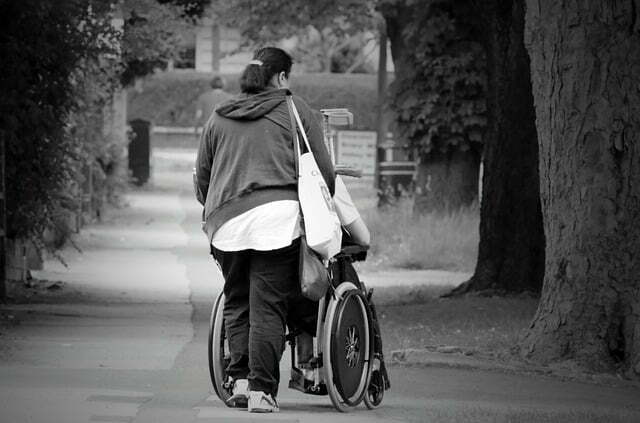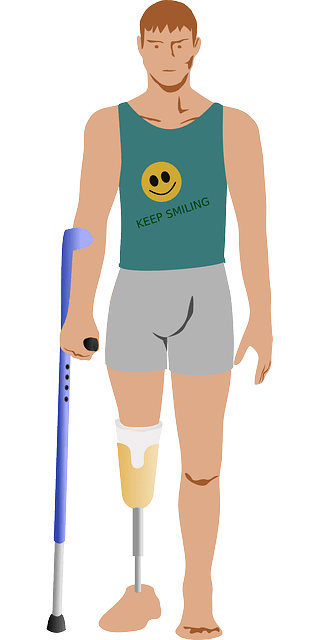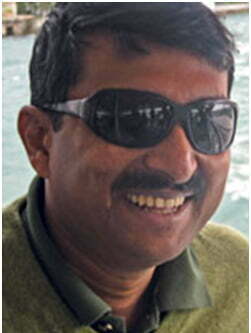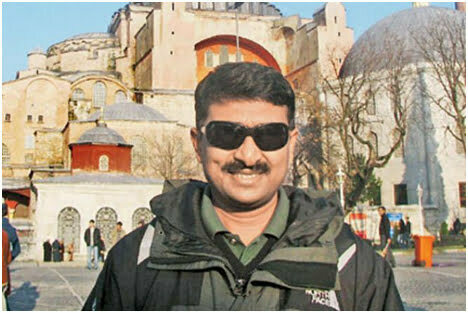
Here are a few extraordinary stories of real life heroes– soldiers who overcame their personal disabilities and reached out to give back selflessly to the society and the disabled– through love and compassion.
Capt Jo Jo Sen Gupta:
 Late Capt. J. K. Sengupta (Retd) was a hero, known for his indomitable spirit and zeal. Having lost his sight in Battle, Capt. Sengupta faced enormous challenges to rehabilitate himself. Once having done so, felt the need to give back to society and reach out to other less privileged persons with disabilities, so he founded the North Bengal Council for the Disabled in the year 1990.
Late Capt. J. K. Sengupta (Retd) was a hero, known for his indomitable spirit and zeal. Having lost his sight in Battle, Capt. Sengupta faced enormous challenges to rehabilitate himself. Once having done so, felt the need to give back to society and reach out to other less privileged persons with disabilities, so he founded the North Bengal Council for the Disabled in the year 1990.
Popularly known as Jojo, he did his initial schooling at Huddard High School, Kanpur, and later joined the Rashtriya Indian Military College (RIMC), Dehra Dun. Brilliant and talented as he was, it was no surprise that he turned out to be a triple gold medallist from RIMC, National Defence Academy (NDA) and Indian Military Academy (IMA). He was commissioned into the 16th Light Cavalry, one of Indian Army’s oldest regiments, in December 1962.
Capt. Sengupta was doing a gunnery instructors course at the Armoured Corps Centre and School, Ahmednagar (Maharashtra), when the second India-Pakistan war, waged again by Pakistan in 1965, broke out. All ranks doing courses at this training establishment were re-called to their respective regiments. Capt. Sengupta reported to 16th Cavalry and was pitched into the operations. On September 21, his fourth day in the war, he was very effectively conducting an artillery shoot from his tank, sighting targets through the binocular sights in the Commander’s hatch of the Centurion tank, when an armour-piercing projectile hit very close. All the glass of the sights got shattered and hit him in his eyes and face. After a prolonged period of convalescing at Army Hospital, Delhi Cantt and INHS Asvini, the Naval Hospital at Mumbai, Capt. Sengupta underwent rehabilitation and mobility training at St. Dunstan’s in England. He also got the opportunity to learn Braille and typing and was able to access other rehabilitation services. He left the Army in 1967 with hundred percent disability and took up the dealership of Tata Oil Mills in Calcutta. In 1972, he also was also allotted the LPG distributorship of Indian Oil in Siliguri by the Directorate General Resettlement.
Having acquired self-reliance and on having been able to successfully set up and run his businesses, Capt. Sengupta felt the strong desire to serve those less privileged and decided to establish the North Bengal Council for the Disabled in 1990 along with other likeminded friends. It was a daunting task to create a motivated team; Capt. Sengupta took the baton in his hands and set out to carry out the mission of NBCD in a manner which is unprecedented and inspiring. It was not an easy task to establish coordination with Govt. agencies and other NGOs and to synergize their efforts for the welfare and rehabilitation of persons with disabilities in the region. His soldierly attitude, perseverance and relentless hard work bore fruit and in 1998 “Prerana” was born. Prerana is a cross disability educational centre for children with disabilities and seeks to provide holistic learning through a well-designed curriculum. Recently, the Centre has begun including non-disabled from poor families and has thus been successful in creating a truly inclusive school. The year 1998 also witnessed the launching of a large ‘Community Based Rehabilitation Programme’ covering disabled persons in 700 villages in the Siliguri Sub Division. Both the programs are now running successfully and have been able to reach out to thousands of persons with disabilities.
In all his endeavours, Capt. Sengupta’s wife, Rita Sengupta has stood by him with steadfastness. He got married to Ms. Rita Biswas in the year 1977. At the time, she was an independent lady and a well-qualified and passionate teacher, teaching in Calcutta. Inspired by their common values and zeal for service the couple dedicated themselves to this cause. They were blessed with twin daughters, Sreemoyee and Sreerupa and a younger son Bibek. His untimely demise on August 31, 2013 was an irreparable loss of a great mind, an excellent person and a wonderful friend and family member.
In 2003, Capt. Sengupta’s daughter, Sreerupa got married to Gopal Mitra and this leads me to the second part of my story.
Maj Gopal Mitra:
 Meet Major Gopal Mitra, SM (Retd). He was commissioned into the Indian Army in 1995 on completion of his BA Honours from St Xavier’s College, Kolkata and joined 15 Mahar. He served extensively in Counter Insurgency operations both in North East India and Kashmir.
Meet Major Gopal Mitra, SM (Retd). He was commissioned into the Indian Army in 1995 on completion of his BA Honours from St Xavier’s College, Kolkata and joined 15 Mahar. He served extensively in Counter Insurgency operations both in North East India and Kashmir.
He was also engaged in active operations during the Kargil War in 1999.In 2000; he was severely injured while leading a ‘search and destroy’ operation in the Kupwara district of Kashmir, and suffered total visual impairment. Mitra survived many near-fatal injuries, 60 stitches across his face, several reconstructive surgeries and almost two years in the hospital. The career of this very promising youngster came to an abrupt end. However, Mitra chose to overcome these insurmountable odds and handicaps through steely resolve, grit and determination. For his gallantry services he was awarded the Sena Medal.
During this period of convalescence, the Army sent him to the National Institute for the Visually Handicapped (NIVH) in Dehradun for a rehabilitation programme. At the National Association for the Blind (NAB, Delhi) he also received training in using JAWS (Job Access with Speech), a software which enables persons with visual impairment to use regular computers by vocalising the keystrokes and reading out the text on the screen.The young officer then went on to achieve greater heights when he set a record at the Tata Institute of Social Sciences (TISS), Mumbai by becoming the first blind student to top a post graduate course. He followed it up by successfully completing M.Sc. in Development Management at the very prestigious London School of Economics with outstanding grades. Major Mitra is also an ardent campaigner of disability rights.After graduating from the LSE, he joined Leonard Cheshire Disability (LCD), an international disability NGO in the UK as the inclusive education manager for the South Asia Region and provided technical support to inclusive education programmes in India, Pakistan, Sri Lanka and Bangladesh. His work in the region helped facilitate access to education of children with disabilities in regular schools.
He is now working in the United Nations Children’s Emergency Fund as Programme Specialist for disability. He is the first Indian with disabilities to occupy this key UNICEF post in 2012. His role involves providing technical support to enhance the inclusion of children with disabilities in policies and programmes at global, regional and national levels. The UNICEF works for child rights in more than 190 countries.

In Mitra’s words, “Young people with disabilities are among the poorest and most marginalised of the world’s youth. Estimates suggest that there are between 180 and 220 million youth with disabilities worldwide, and nearly 80 per cent of them live in developing countries. So our point is if people with disabilities are not included by the government in programmes and policy making, it is not only a violation of human rights of the disabled, but also a huge loss of potential to the nation.”
This has once again proved the old adage: Once a soldier always a soldier even despite the unexpected turn of destiny. The bigger ‘Battle of Life’ can always be won no matter what the circumstances! Late Capt. Sengupta and Major Mitra’s humility and genuine kindness to everybody, made not only a lasting impression on all who met them, but also deep admirers. The family presents before us an example of courage, determination and selfless devotion to society. Nothing is impossible and no impediment or impairment big enough if one has a clear goal and the courage to follow one’s own convictions.

